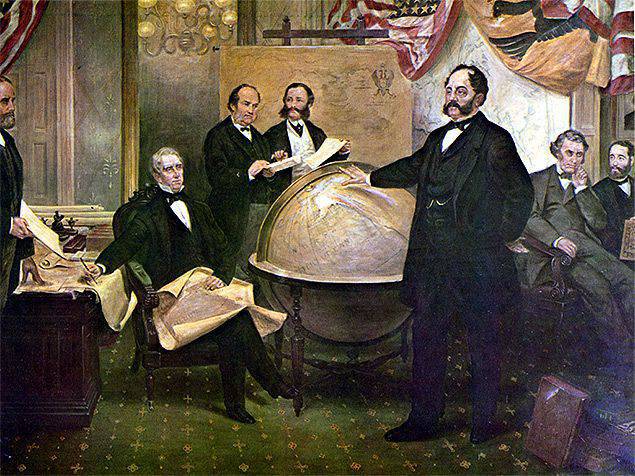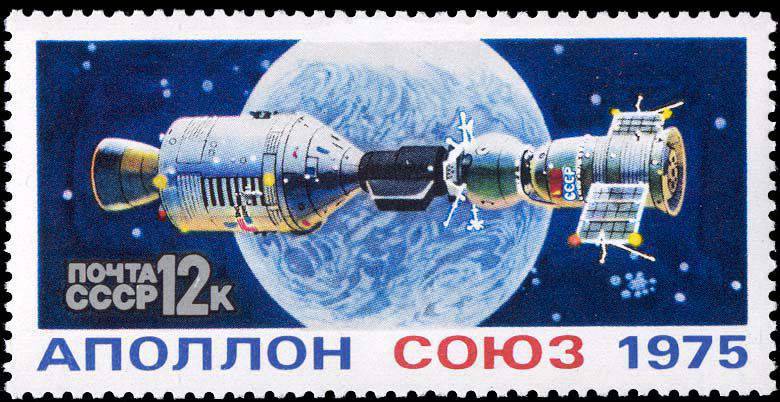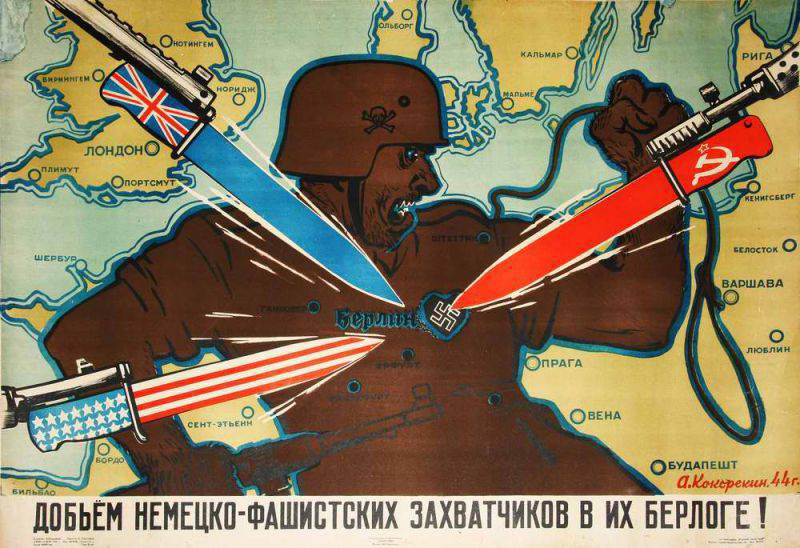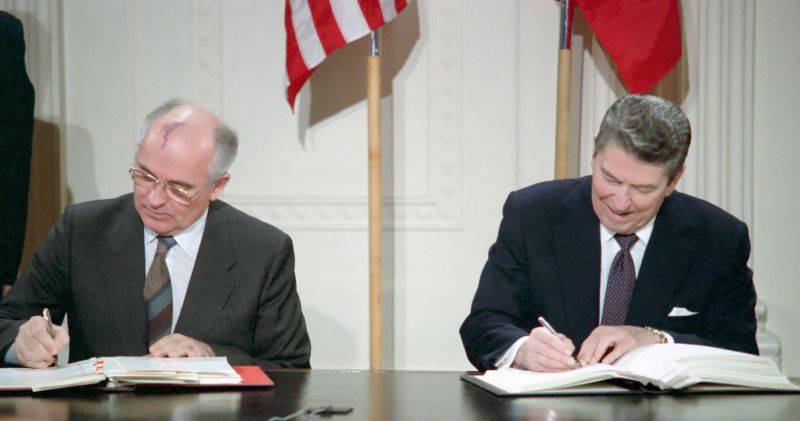Top 5 cases when Russia and the United States were at the same time
A Russian diplomat, Eduard Stekl, on behalf of Alexander II, negotiated with the US government for the sale of Alaska.

The idea to sell Alaska to Americans for the first time sounded in the 1850-s. By that time, this territory, discovered during an expedition led by Gvozdev and Fedorov, had belonged to Russia for more than a century. Selling local furs brought a certain income, but over time it became clear: the maintenance of Alaska leaves the royal treasury takes too much money. For the sake of close relations with the USA and strengthening our eastern borders, it was decided to get rid of this region. Negotiations with overseas partners took about a year. The sale and transfer agreement was signed on 30 March 1867 of the year. Alaska cost Americans 7.2 million dollars. At the end of the 19th century, the Gold Rush began in the state of the same name, which convinced critics that the deal was really profitable for the United States itself.
To create a semblance of the anti-Hitler coalition for the struggle against the Islamists in Syria from the rostrum of the UN General Assembly was strongly urged by Vladimir Putin. But from the unanimity of the times of the Second World War, there is not a trace left. Although the enemy of all countries declared the same and the goals, in general, are declared the same, 74 a year ago Moscow and Washington were able to find a common language much faster. The United States supported Stalin and the Soviet people in the early days of the German invasion.
Then they included the USSR in the Lend-Lease program, helping with weapons, equipment and food. Officially, a coalition against the Nazis took shape at the beginning of 1942. The key decisions along with the Americans and Russians were made by the British, and dozens of states had already joined the coalition. The countries, however, had many differences in their understanding of how to counter the Third Reich. The United States and Great Britain were slow in opening the second front, and the USSR was in no hurry to declare war on Japan. They argued about the post-war settlement and the future of Germany. One way or another, the coalition played a key role in defeating Germany and its allies.
Moscow and Washington often criticize each other for non-compliance with agreements on phased disarmament. But sometimes diplomats still manage to sit at the negotiating table and sign another document. The first such agreement concerned nuclear weapons and was concluded in 1963 year. The treaty, which was later joined by other states, prohibited testing in the atmosphere, space and under water. The next, this time bilateral document, regulated the accumulation of nuclear weapons. The agreement and its subsequent versions are called OSV - strategic arms limitation. In 1987, Mikhail Gorbachev and Ronald Reagan signed an agreement on the elimination of medium and short-range missiles. Nowadays, the Russian leadership is already negotiating with American colleagues on the reduction of strategic offensive arms. The latest START III agreement provides for the reduction of nuclear warheads to 1550 on each side.
Moscow and Washington often criticize each other for non-compliance with agreements on phased disarmament. But sometimes diplomats still manage to sit at the negotiating table and sign another document. The first such agreement concerned nuclear weapons and was concluded in 1963. The treaty, which was later joined by other states, prohibited testing in the atmosphere, space and under water. The next, this time bilateral document, regulated the accumulation of nuclear weapons. The agreement and its subsequent versions are called OSV - strategic arms limitation. In 1987, Mikhail Gorbachev and Ronald Reagan signed an agreement on the elimination of medium and short-range missiles. Nowadays, the Russian leadership is already negotiating with American colleagues on the reduction of strategic offensive arms. The latest START III agreement provides for the reduction of nuclear warheads to 1550 on each side.
Cooperation of the two countries in space is already more than half a century old, and this is probably the only area that for decades seems to be out of politics. Moscow and Washington signed the first agreement on the use of artificial satellites for meteorology and ultra-long-distance communications, compiling a map of the Earth’s magnetic field in 1962. Since then, another fifty agreements have been concluded. The main symbol of this space “friendship” is the docking of the Soyuz-19 and Apollo ships in 1975.

An important indicator of normal relations in this area is the sharing of the ISS. Another important area of cooperation is the program to launch American commercial satellites from Russian space centers.
Before relations between our countries began to deteriorate due to the Ukrainian crisis, cooperation in the fight against terrorists was very effective. At least this was openly stated at the State Department. The FSB and the FBI increasingly exchanged information, and after the terrorist attack on the Boston Marathon, the Russian special services helped their American colleagues in the investigation. No less fruitful until recently was "anti-drug" cooperation. After the head of the Federal Drug Control Service, Viktor Ivanov, was blacklisted by the United States, Moscow accused Washington of nullifying its accumulated experiences in the fight against drug trafficking.


Information